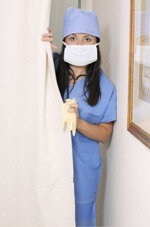
Infectious Diseases in the United States
Turn on the nightly news and you’ll hear about the latest infectious disease concern threatening the U.S. While HIV/AIDS, Avian Influenza, H1N1 (swine flu), SARS and Mad Cow disease may seem like a thing of the past, they’re still on the radar of the Centers for Disease Control (CDC) along with polio and bubonic plague. They know they can’t afford to take their eye off of the past, even while they’re busy fighting modern-day threats like Ebola, Zika and MERS-CoV viral respiratory illness.
According to the CDC, emerging infectious diseases in humans have increased during the last twenty years and will continue to increase. World travel from countries without preventative health measures now affect the U.S. Without knowledge of an infectious disease’s transmission patterns, it’s hard to stem the spread. Zika is a perfect example. Where it was originally thought that the only form of transmission was through a mosquito, research is now showing that it can be transmitted through sexual contact if a man is infected--more is being learned every day.
Travel nurses, healthcare workers and first responders need to prepare for these infectious diseases, especially those without a known cure. Here are some tips for staying safe at work and avoiding infection:
1. Know Your Personal Health IQ
Staying current on your vaccinations is key, especially for measles, mumps, chicken pox and TB. If you’ve been traveling outside the U.S., be sure to get tested for infectious diseases prevalent in the country you visited. If you’ve been exposed to a norovirus (on a cruise ship) or Hepatitis C, take precautions to stay well and avoid infecting patients/co-workers.
2. Safe Gear & Sanitizing
Travel nurses know the importance of sanitizing before and after touching patients to avoid spreading C.diff and MRSA infections. For nurses working with patients suffering from an infectious disease, protective gear is recommended. Most hospitals have policies in place for the safety of their healthcare staff. Research into the type, strength, and barrier testing of protective gear is extensive and the CDC recommendations should be followed to the letter.
• Wear protective clothing. This may include a gown (surgical, isolation or coveralls), a mask that covers the face, gloves and eye protection. The CDC has specific recommendation on eye safety, protective gear and other clothing/fabric recommendations.
• If recommended, use a respirator in place of a mask.
• Follow CDC/WHO best practices and hospital procedures when removing protective gear and disposing of hazardous waste.
• Wash hands and areas exposed to patients after leaving their room
3. Stay Informed
For the savvy travel nurse, knowledge is power, both in care-giving and professional safety. According to the CDC website, “Health care workers face a wide range of hazards on the job. Cases of non-fatal occupational injury and illness among healthcare workers are among the highest of any industry sector.”
Workplace safety is important for travel nurses. Stay aware and informed about infectious diseases in different areas of the country and be prepared. As you move from location to location, get to know the area where you’re traveling and make sure you do everything to protect yourself. An ounce of prevention and an educated eye will help protect you, the staff and patients.